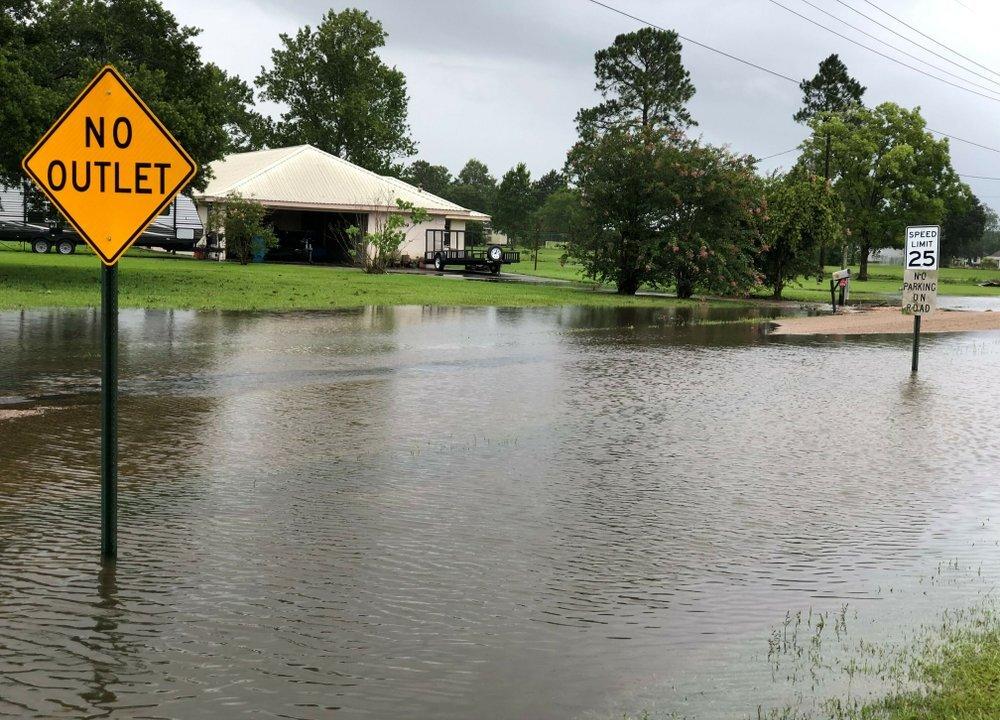NEW ORLEANS—Even though Tropical Depression Barry did not unleash catastrophic flooding in Louisiana, many across the Gulf Coast were urged to take heed of tornado and flash-flood warnings on July 15 as the storm moved north.
Barry was downgraded from a tropical storm on Sunday afternoon but continued to pose a threat. Much of Louisiana and Mississippi were under flash-flood watches, as were parts of Arkansas, eastern Texas, western Tennessee and southeastern Missouri.





